This week we have ‘witness statements’; the first one is from a parishioner who is a physician who works at Massachusetts General Hospital, and volunteers at the MGH/Freedom Clinic one day/week. The MGH Freedom Clinic was launched in April, 2015 to care for victims and survivors of human trafficking in the Boston area. The Clinic offers free primary and preventative care for victims and survivors of human trafficking ages 13 years and older.
“I have been privileged to meet the residents of Bakhita house as patients. Through my work as a primary care physician at the MGH Freedom clinic I see many young women who have found refuge at Bakhita house. Their feelings are a mix of fear and relief. For some they have come straight off the streets – extracted from the hands of an abusing trafficker. For others – they have been saved from servitude in a job they were never paid for and worked 7 days a week. All are damaged. They have a deep mistrust in the health system because often times they may have been seen by a nurse or doctor who failed to see the signs that they were victimized.”
“One young woman had come to the US to work as a nanny. She had her passport taken away as soon as she arrived and the host family neglected to pay her, for months. She worked 14 hour days and was given no time off. She had hoped to make some money to send home to her family in the Philippines, but was unable to even communicate with them as her phone was taken away too. Thanks to her own savvy – this young woman called the Human Trafficking hotline (1-888-373-7888) and was freed. She stayed at Bakhita House where the nuns provided a loving home while she healed from her ordeal. She is now living in her own apartment, working a paying job, and sending money home to her family.”
“Another young woman, a New England native, was part of a forced prostitution ring. She was freed thanks to local law enforcement cracking the case and was brought to Bakhita House. She is still fragile. Her past life included opioid addiction and she is now trying to leave that behind. I work with wonderful counselors who also help these women recover from their trauma. The journey to recovery is long.”
“I treat sore throats and asthma flares, nightmares and addiction, and have learned volumes about the vulnerabilities and needs of this special population, all from the survivors themselves. I am continually impressed by their grace and strength. For many, faith plays a role in the ongoing hope. As one survivor writes: ‘To Love is to Believe. May we so love as to believe!'”
The second statement is from a guest at the Bakhita House. It attests to the unique ambiance of the house, created by the wonderful sisters who provide 24/7 coverage at the house, every day of the year.
“The Bakhita safe house is a one of a kind, as are the women who run it. They can be tough as nails and yet offer a soft place to land. They are well prepared for the challenge of working with girls like us: the ups and the downs that we go through are challenging! Some days we can be angry and defensive and some days we just need a shoulder to cry on; some days we want to run away or give up. When I moved in, they made me realize I was now a part of something – I became like family to them. When I need something they are a phone call away.”
“I honestly don’t think I would be where I am today without them. When you come out of a situation like being trafficked, you are skeptical of everyone, but you can count on the women who staff Bakhita House. And anyone they trust I trust! The volunteers they select are the cream of the crop. If you let them, they’ll be with you every step of the way no matter how scary it can be. This isn’t a shelter this is a family & I hope it never dies.” Rhonda (not actual name)
PLEASE VISIT OUR COLLABORATIVE LENTEN GIFT PAGE FOR MORE INFORMATION
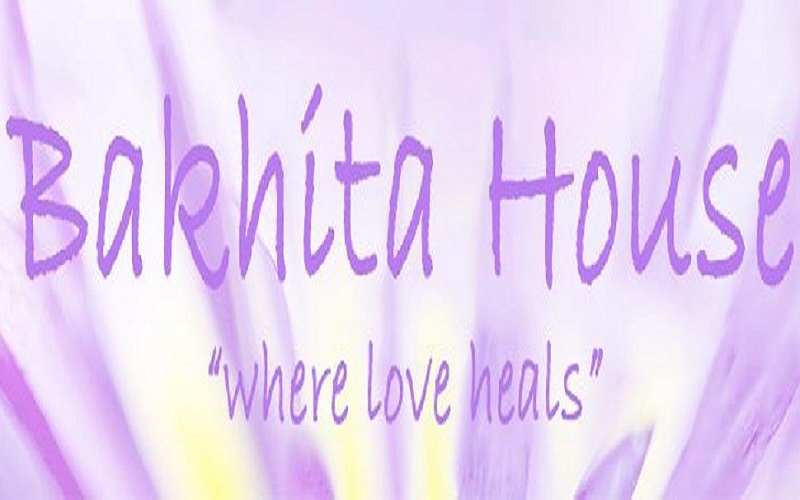 This is the weekend to share in the extraordinary ministry of Bakhita House through our Lenten Gift! Once again, this is our opportunity, as individuals and as a community, to respond to the need before us and help ease the suffering of human trafficking. Over the years, we have tried to direct our Lenten Gift to an immediate, urgent situation, and this is what exists now at Bakhita House.
This is the weekend to share in the extraordinary ministry of Bakhita House through our Lenten Gift! Once again, this is our opportunity, as individuals and as a community, to respond to the need before us and help ease the suffering of human trafficking. Over the years, we have tried to direct our Lenten Gift to an immediate, urgent situation, and this is what exists now at Bakhita House.
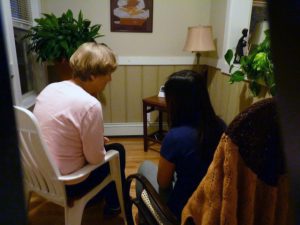 The current staff of The Bakhita House includes five religious sisters from three different religious orders, who work in pairs to be able to staff the house 24-7. The staff coordinates a team of over 30 volunteers from a variety of religious congregations as well as lay volunteers, who are critical to the mission of The Bakhita House. Volunteers provide a range of services to guests, including transportation, on-site life skills and social skills training, and tutoring. Volunteers also help engage in advocacy efforts and in fundraising. Volunteers receive training and are encouraged to be non-judgmental in their interactions with guests, providing an additional layer of care, support, and community at Bakhita House. If you might be interested in helping as a volunteer or advocate, please visit the website for more details and contact information:
The current staff of The Bakhita House includes five religious sisters from three different religious orders, who work in pairs to be able to staff the house 24-7. The staff coordinates a team of over 30 volunteers from a variety of religious congregations as well as lay volunteers, who are critical to the mission of The Bakhita House. Volunteers provide a range of services to guests, including transportation, on-site life skills and social skills training, and tutoring. Volunteers also help engage in advocacy efforts and in fundraising. Volunteers receive training and are encouraged to be non-judgmental in their interactions with guests, providing an additional layer of care, support, and community at Bakhita House. If you might be interested in helping as a volunteer or advocate, please visit the website for more details and contact information: 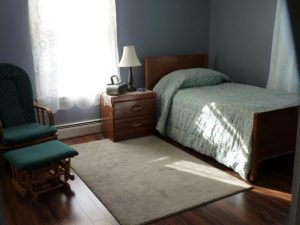 It starts with providing comfortable private rooms and convenient accommodations. The community has protocols and rules that focus on safety and confidentiality, all in a warm and caring environment. The community emphasizes and validates the guests’ strengths, adaptations and resilience. BH has adopted an empowerment model that enables guests to experience a renewed sense of control in their lives. Working with a case manager, each guest creates her own goals.
It starts with providing comfortable private rooms and convenient accommodations. The community has protocols and rules that focus on safety and confidentiality, all in a warm and caring environment. The community emphasizes and validates the guests’ strengths, adaptations and resilience. BH has adopted an empowerment model that enables guests to experience a renewed sense of control in their lives. Working with a case manager, each guest creates her own goals.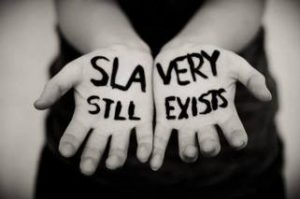 Human trafficking, the modern day practice of slavery, can be described most simply as “activities involved when one person obtains or holds another person in compelled service”. The term trafficking in persons can be misleading because the emphasis is on the transaction aspect, but the crime is enslavement and exploitation of people, day after day for months or even years. Traffickers use force, fraud, or coercion to control other people for the purpose of engaging in commercial sex or forcing them to provide labor services against their will. All trafficking victims share one essential experience – the loss of freedom.
Human trafficking, the modern day practice of slavery, can be described most simply as “activities involved when one person obtains or holds another person in compelled service”. The term trafficking in persons can be misleading because the emphasis is on the transaction aspect, but the crime is enslavement and exploitation of people, day after day for months or even years. Traffickers use force, fraud, or coercion to control other people for the purpose of engaging in commercial sex or forcing them to provide labor services against their will. All trafficking victims share one essential experience – the loss of freedom.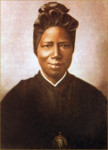 Bakhita House is named after St. Josephine Margaret Bakhita who was born in 1869 in the Darfur region of the Sudan. In 1877, when she was eight years old, she was kidnapped by Arab slave traders and spent the next 12 years enslaved. Eventually she was brought to Italy – and her freedom – through the help of the Canossian Daughters of Charity. She took her final vows in 1896 and for the next 42 years dedicated her life to sharing her testament of deliverance from slavery and comforting the poor and suffering. She died on February 8, 1947.
Bakhita House is named after St. Josephine Margaret Bakhita who was born in 1869 in the Darfur region of the Sudan. In 1877, when she was eight years old, she was kidnapped by Arab slave traders and spent the next 12 years enslaved. Eventually she was brought to Italy – and her freedom – through the help of the Canossian Daughters of Charity. She took her final vows in 1896 and for the next 42 years dedicated her life to sharing her testament of deliverance from slavery and comforting the poor and suffering. She died on February 8, 1947.